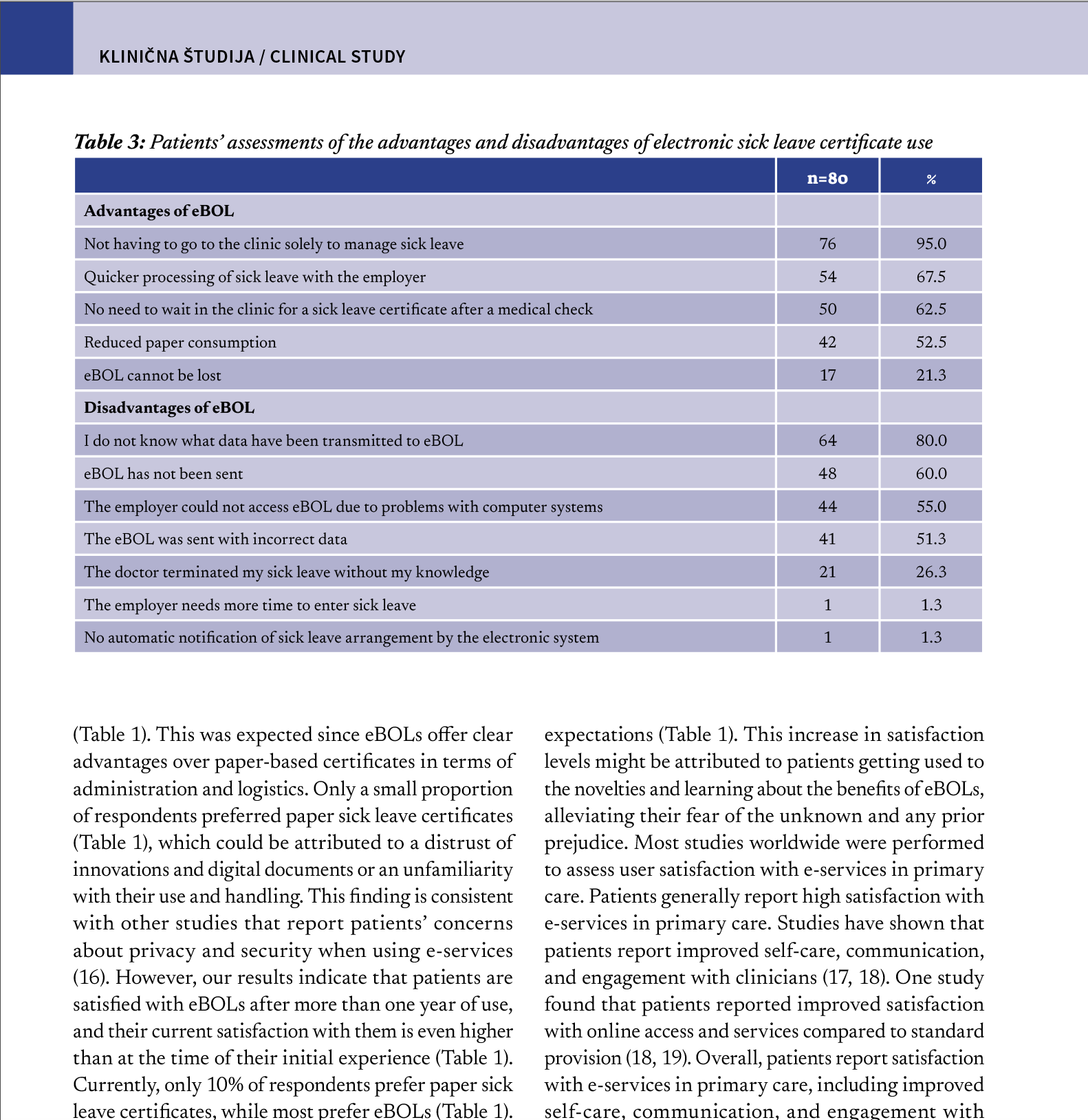Patient Satisfaction with Electronic Sick Leave Certificates: Survey of Family Medicine Outpatient Clinics
Zadovoljstvo pacientov z elektronskimi bolniškimi listi: raziskava v ambulantah družinske medicine
Abstract
Purpose: In Slovenia, the transition from paper-based to electronic sick leave certificates (hereafter referred to as eBOLs) started at the beginning of 2020. While paper sick leave certificates are still widely used worldwide, many European countries are already reaping the benefits of using the eBOL system. This survey aimed to determine patients' satisfaction with the new eBOLs and highlight the most significant advantages and disadvantages from the patient's viewpoint.
Methods: A quantitative cross-sectional survey was conducted in Maribor, Slovenia, and the surrounding area to collect quantitative data from family medicine outpatient clinics. Two hundred and fifty patients were randomly selected among those receiving either paper or electronic sick leave certificates. The survey was conducted online with a web survey link and consisted of two parts. The first part included eight items measuring patients’ experiences with electronic and paper sick leave certificates, rated on a five-point Likert scale. The second part consisted of two multiple-choice questions regarding the advantages and disadvantages of eBOLs. The data were analysed using bivariate statistical analysis.
Results: Out of the 250 patients invited to participate in the study, 80 responded, resulting in a response rate of 32%. The mean age of the participants was 46.2 ± 11.2 years, with 56 (70%) women and 24 (30%) men. After more than a year of usage, 57 (71.3%) respondents expressed complete agreement that the eBOL system makes it easier for patients to manage their sick leave. Furthermore, 55 (68.8%) participants considered eBOLs as a good alternative to paper sick leave certificates. Most participants (76 (95%)) considered avoiding additional outpatient visits to manage their sick leave as the most significant advantage of using eBOLs. However, 64 (80%) respondents expressed uncertainty about the data sent by the eBOL system as the most significant disadvantage.
Summary: The survey results showed that patients were already significantly satisfied with the eBOL system when it was first introduced and that their satisfaction increased with continued use. A broader survey including a larger number of Slovenian outpatient clinics and capturing both patients' and doctors' opinions would provide more precise and broader insights into the newly introduced IT system's advantages and disadvantages and its users' satisfaction.
Downloads

Copyright (c) 2024 Ksenija Tušek Bunc, Primož Bobek (Author)

This work is licensed under a Creative Commons Attribution 4.0 International License.